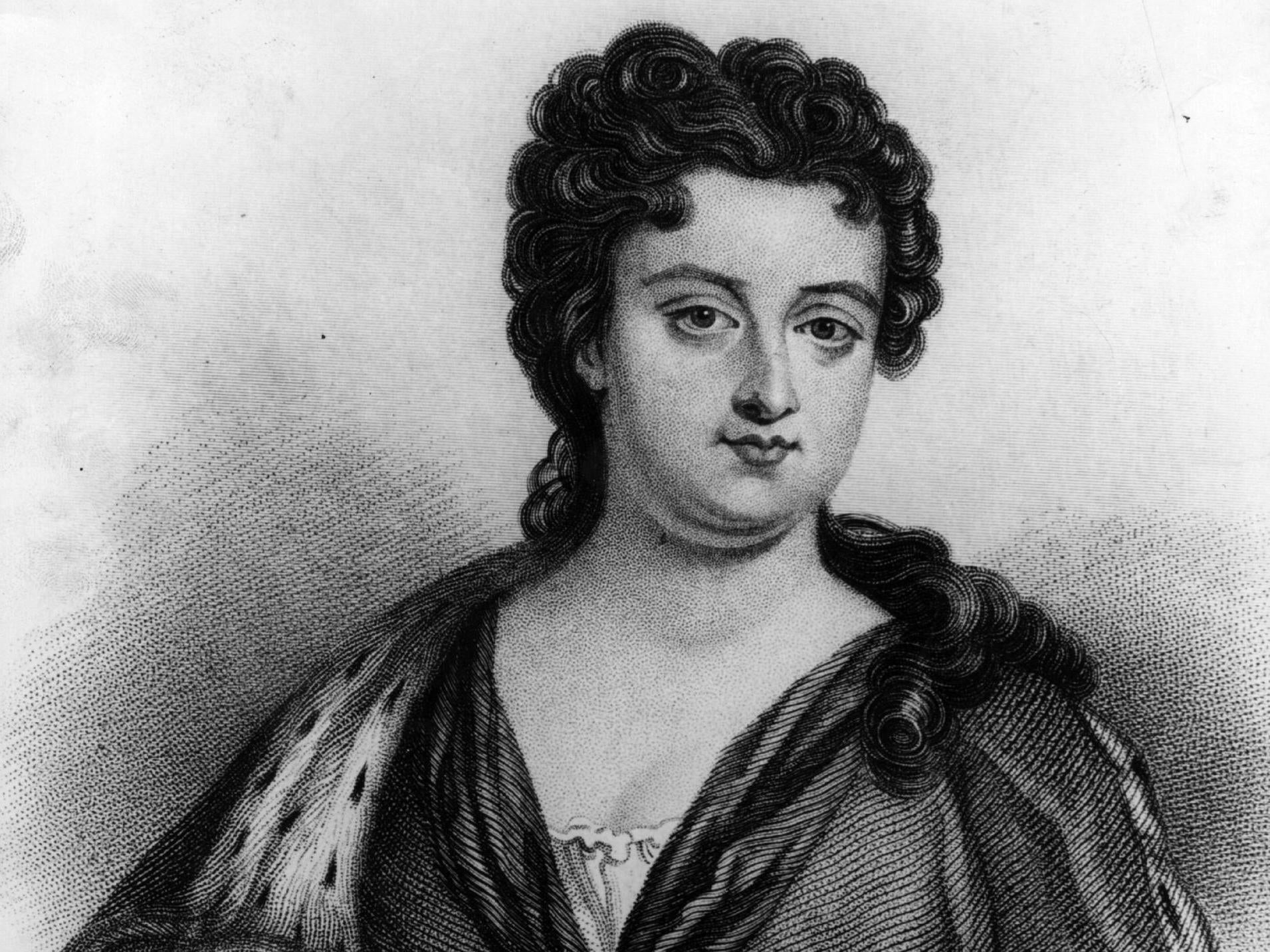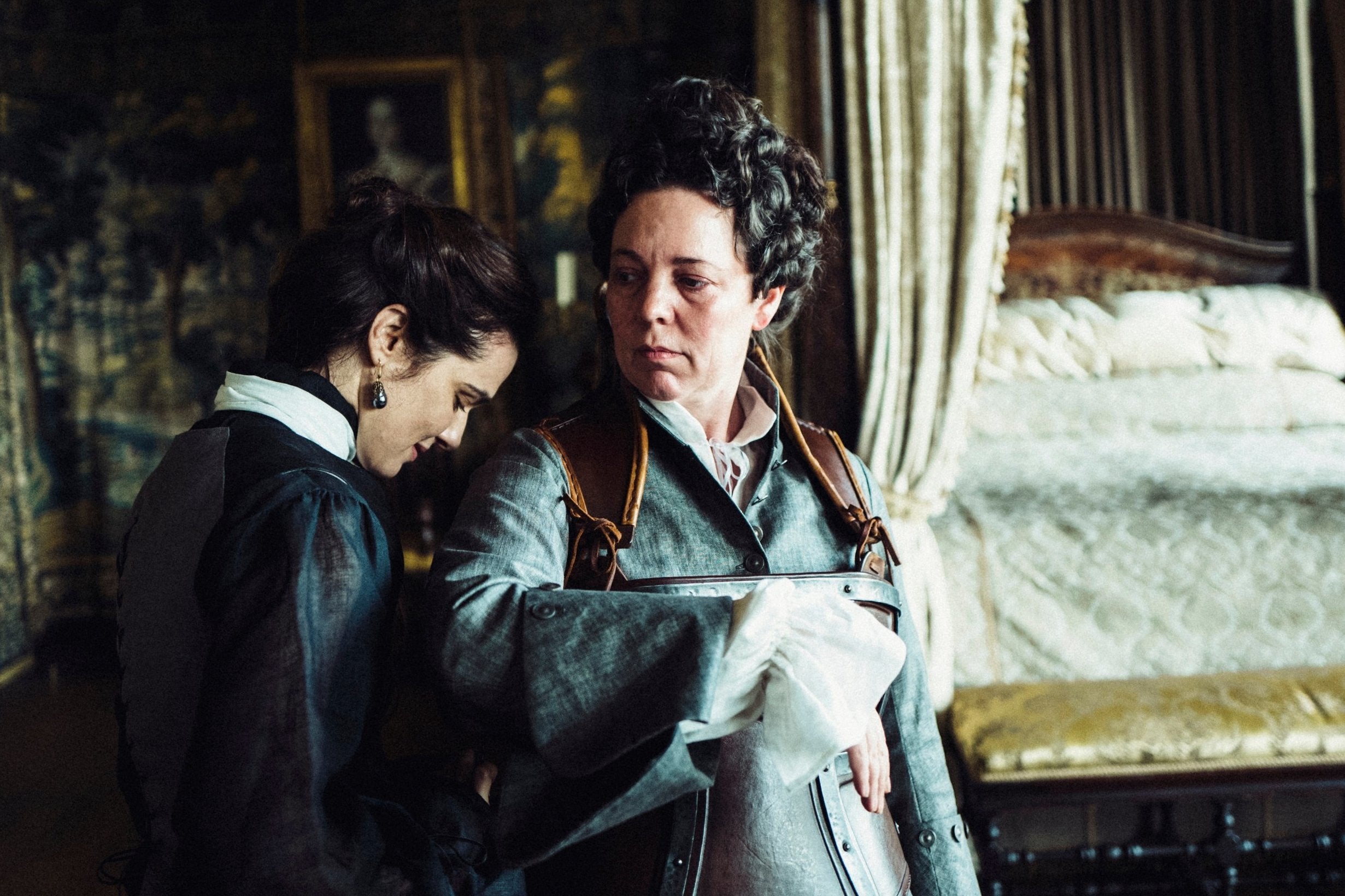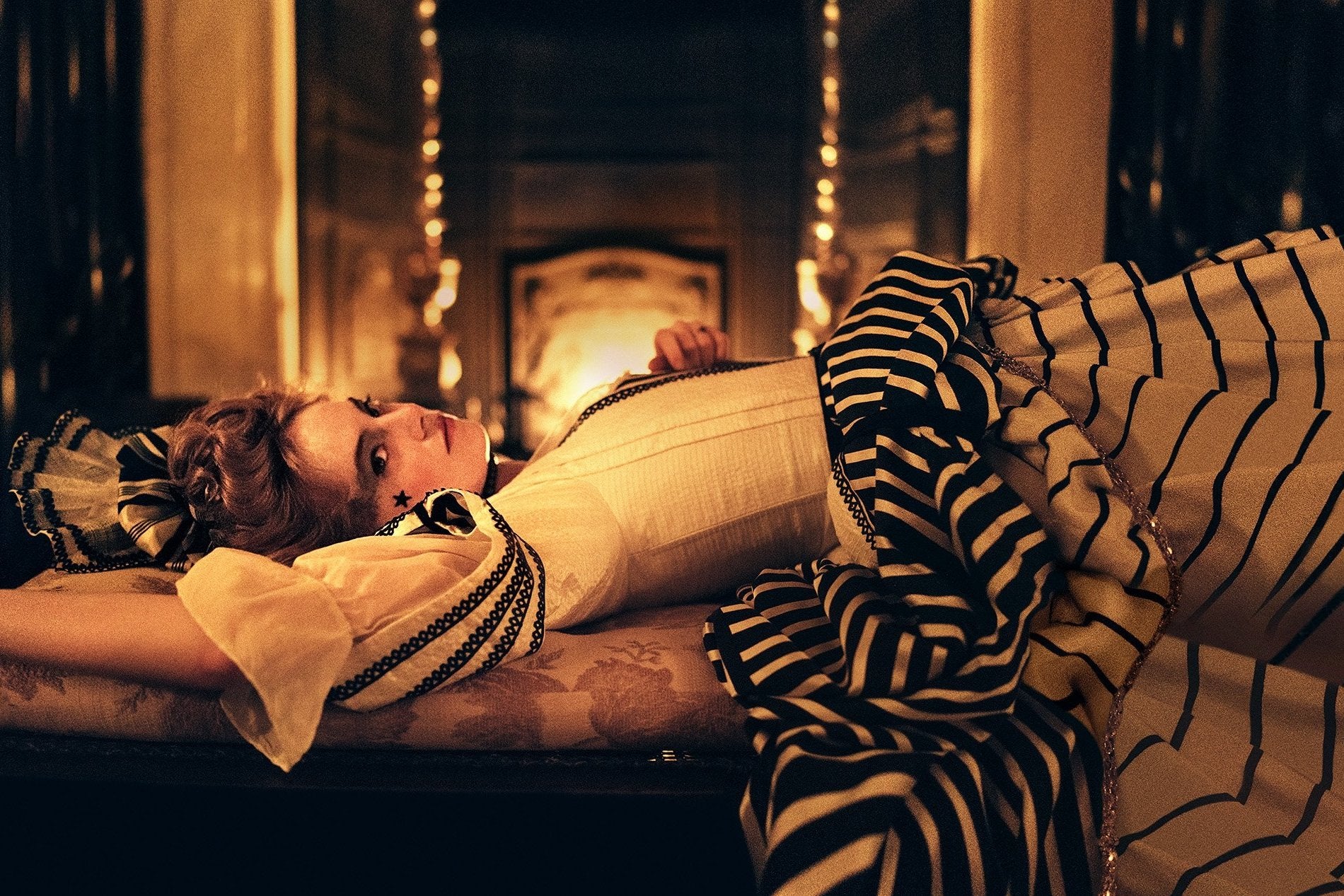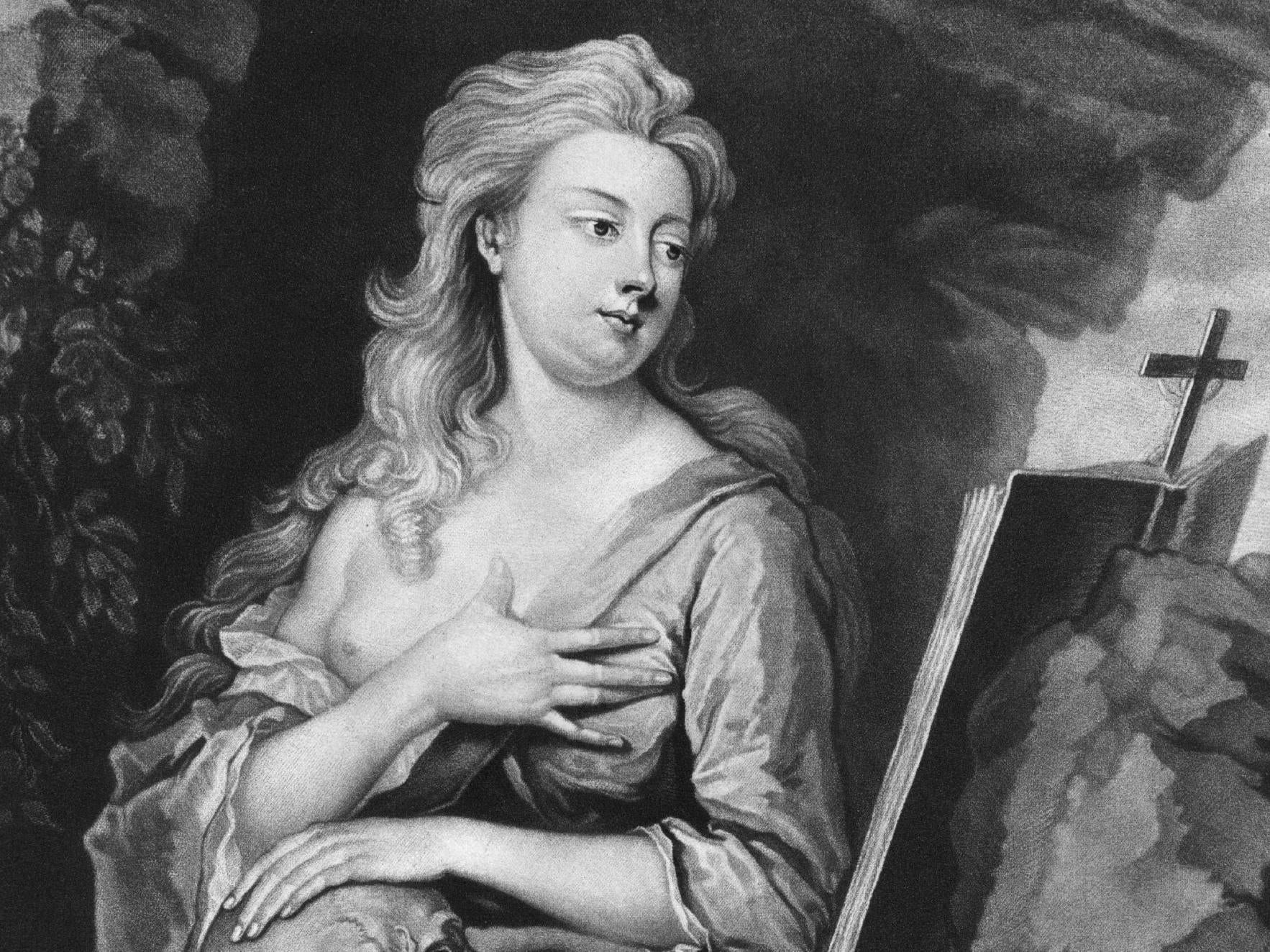The Favourite: The true story behind the Oscar-nominated film starring Olivia Colman
Colman tipped for Academy Awards glory for role as sickly Queen Anne but how many liberties does director Yorgos Lanthimos take with 18th-century history?
The Favourite appears poised to take this year’s Oscars by storm after securing 10 nominations from Academy voters.
The Restoration black comedy from director Yorgos Lanthimos recounts a bitter rivalry in the court of Queen Anne. Its star, Olivia Colman, has received particular acclaim for her performance as the sickly monarch and a win for Best Actress would be no less than she deserves.
Colman has said she deliberately did not study the history of Anne’s reign prior to production, preferring to work solely from the screenplay, originally written by Deborah Davis in 1998 and entitled “Balance of Power” before being revised and updated by Tony McNamara.
One of the pleasures of Lanthimos’s resulting film is that it likewise refuses to allow itself to become bogged down by historical fact or academic pedantry, preferring to take liberties with the truth (and the language, fashion and dance moves of the period) for the greater good of its story.
“Sometimes a lady likes to have some fun,” as Rachel Weisz’s Sarah Churchill so succinctly puts it.
Nevertheless, it is illuminating to return to Anne’s biography to see where The Favourite deviates and why those choices were made.
Anne was born at St James’s Palace on 6 February 1665 while her uncle, King Charles II, was on the throne. She and her sister Mary were the only surviving children of the Roman Catholic-convert Duke of York and Anne Hyde, daughter of the Lord Chancellor.
As a child, Anne and Mary were given Anglican baptisms and the former raised in France by her paternal grandmother, Henrietta Maria, and aunt, Henrietta Anne, Duchess of Orleans, while Mary remained in London. This was undoubtedly a lonely upbringing for a child who had already lost six siblings, her beloved governness and her mother by the age of 16.
Anne first encountered Sarah Jennings, the future Duchess of Marlborough, as a child. Sarah would marry John Churchill (played by Mark Gattis) in 1678, the latter to become Anne’s most important general.
Princess Anne in turn married Prince George of Denmark in 1683 and his complete absence from Lanthimos’s film is perhaps its biggest departure, the royal dying in October 1708, the year in which The Favourite takes place. The queen is said to have greatly grieved his passing.
It was with Anne’s marriage that Sarah Churchill first entered her household, serving as one of her ladies of the bedchamber and beginning a career that would see her hold a range of positions, from groom of the stole to mistress of the robes, keeper of the privy purse and ranger of Windsor Great Park.
“Sarah admitted that she cultivated the relationship with great care, and now began to employ all her wit, all her vivacity and almost all her time to divert and entertain and serve the princess,” writes biographer Anne Somerset.
The two would become extremely close, refering to one another by the nicknames “Mrs Morley” and “Mrs Freeman”, the joke monikers conveying the status of equals.
As addressed in the film, Anne did indeed have 17 miscarriages over the course of her marriage to George, traumas that took a considerable toll on her physical and emotional wellbeing, although the idea she kept a pet rabbit in honour of each lost child is a melancholy invention.

She was beset by gout, severe myopia and probably lupus for much of her life and often had to be carted around in a wheelchair by her maids, just as the film suggests.
King Charles died in 1685, leaving no heirs, so Anne’s father ascended to the throne as King James II of England and Ireland (James VI of Scotland). He proved an unpopular monarch at a time when anti-Catholic sentiment was rife in England and “Popish” influence from overseas much feared.
James was deposed just three years into his rule by the Glorious Revolution and replaced by his Protestant daughter Mary and her husband, William of Orange, a Dutchman and first cousin. Anne knew of the invasion, siding with her sister over her father, causing the latter to lament: “God help me! Even my children have forsaken me.”

After 14 years of tension with Princess Anne over her expectations regarding royal privileges and her relationship with the distrusted Churchills, Mary and William likewise passed away childless, circumstances that led to Anne’s coronation in 1702.
The War of the Spanish Succession had just erupted and John Churchill, now the Duke of Marlborough, pulled off a string of stunning victories, notably at the Battle of Blenheim in 1704.
Anne moved quickly to distance herself from her Dutch predecessor, securing the public’s favour by stressing her love for England, through her military successes and by signing the Acts of Union in 1707, which brought England and Scotland together as Great Britain under one parliament.

Other interesting details from her early career as monarch occurring too early for The Favourite's timeline include her knighting the astronomer and physicist Isaac Newton in 1705 and acting as patron to George Frideric Handel, supplying the composer with £200 per annum.
In addition to the rumbling conflict in Europe, Anne’s rule would be marked by the establishment of the two-party political system, the queen favouring the likeminded Anglicans of the Tories over the rival Whigs, a preference that would set her at odds with Sarah Churchill.
As depicted in The Favourite, the queen did take counsel from a ministry including the likes of the lord treasurer, Sidney Godolphin, and the speaker of the House of Commons, Robert Harley, played by The Thick of It's James Smith and a superbly foppish Nicholas Hoult respectively.
Whether they really raced ducks or pelted naked jesters with oranges is less well-established.
Abigail Hill, Emma Stone’s ambitious usurper, was related to Harley as well as Sarah Churchill (the film only acknowledges the former tie for the sake of simplicity), which explains how the servant came to operate as the speaker’s informer on royal leanings. Her kindly presence at Anne’s side offered a welcome counterpoint to Churchill’s steelier brand of guidance.
Abigail poisoning Sarah’s tea - causing her to fall from her horse, be dragged through the woods, nursed back to health in a brothel and return to court glowering from beneath an eyepatch – is a fiction, albeit a brilliant one.

To what extent Abigail’s emergence is responsible for driving a wedge between Anne and Sarah Churchill is open to debate but the latter was sufficiently angered by the new Baroness Masham taking ownership of rooms belonging to her at Kensington Palace that she disseminated a bawdy poem at court in July 1708.
Written by an anonymous Whig satirist, thought to be Arthur Mainwaring, the verse alleged a lesbian relationship (or “dark deeds at night”) between the queen and Abigail.
The Duchess later wrote to Anne warning her she had damaged her reputation by conceiving “a great passion for such a woman... strange and unaccountable”.
She also threatened to release compromising letters in which Anne expressed her devotion to Sarah. “If I writ whole volumes I could never express how well I love you... Unimaginably, passionately, affectionately yours,” the queen had written.

While Churchill’s use of the word “passion” is certainly suggestive, most historians reject the idea the queen had sexual relationships with either Sarah or Abigail for want of evidence, citing her prudish Christian morality and ill health as two reasons for its unlikelihood.
Queen Anne died in 1714, the last Stuart monarch, her legacy tarnished by the Duchess of Marlborough’s scathing account of her in her memoirs, describing her former employer as “a weak, irresolute woman beset by bedchamber quarrels and deciding high policy on the basis of personalities”.
This characterisation of Anne – bloated and childlike – has long stood but lately a more sympathetic, revisionist reading of her career has taken hold, emphasising her commitment to political life and probable struggle with depression as a result of her many personal sorrows.
The Favourite breathes fresh life into an eccentric figure whose statue stands before St Paul’s, often entirely unnoticed by passersby.

Join our commenting forum
Join thought-provoking conversations, follow other Independent readers and see their replies
Comments
Bookmark popover
Removed from bookmarks